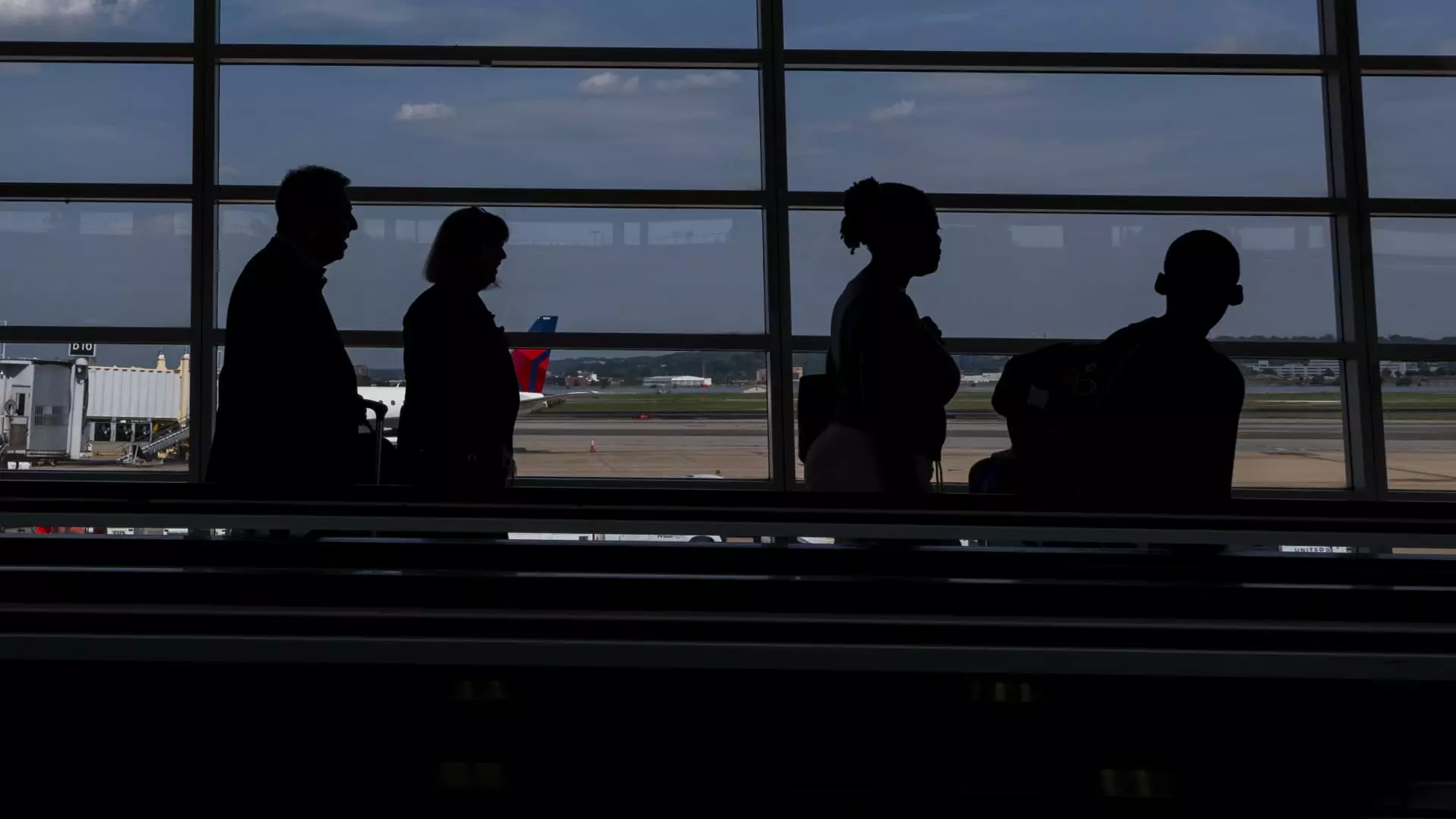The prospect of upcoming holidays often brings a sense of excitement and anticipation. Families typically plan trips and gather for celebrations. However, as November approaches, many are reconsidering their travel plans against a backdrop of political volatility. Instead of hopping on a plane to popular destinations, many families are opting for a stay-at-home Thanksgiving, reflecting a collective anxiety rooted in the socio-political climate.
Emily Reeve, a resident of Portland, Oregon, represents many contemporary travelers who are acutely aware of the broader implications of a charged election season. This year, she and her husband have chosen to forgo their usual Thanksgiving getaways to places like Hawaii or Disneyland. With a toddler in the equation, concerns about potential public disorder in the aftermath of the elections have made them rethink holiday travels altogether. There’s a palpable tension in the air, where even the prospect of air travel becomes intimidating. “What if we get caught in a crowd reacting to election results? Are we ready for that?” Reeve reflects on her thought process.
This sentiment isn’t confined just to individual families; it resonates widely throughout the travel industry. Experts indicate anxiety around the 2024 vote is instigating a pervasive change in consumer behavior, prompting many to reconsider their travel destinations, timing, and company.
A recent survey conducted by The Vacationer reveals that nearly two-thirds of American adults are wary of traveling within the United States due to potential unrest following the elections. This apprehension cuts across party lines, though specific fears are often dictated by individual political stances. About 25% expressed they would avoid travel if Vice President Kamala Harris is elected, while only 16% mentioned the same if former President Donald Trump wins. A significant segment—24%—anticipates staying home regardless of the electoral outcome, illustrating the deeply ingrained political divide.
These insights echo feedback gathered from travel agencies and transport carriers. Delta Air Lines CEO Ed Bastian articulated this downturn succinctly, noting that Americans traditionally prefer to remain at home during election seasons, anticipating instability. Similarly, United Airlines representatives are bracing for a significant drop in bookings, which historically rebounds as the political tension subsides.
Companies are not immune to these shifts either. Kelly Soderlund from Navan highlights that corporate travel bookings have dipped compared to last year, indicating a growing trend of companies wary of the potential impact of political unrest on employee safety. Organizations now prioritize “duty of care,” recognizing the obligation to ensure their employees’ safety while traveling.
The political climate’s volatility doesn’t just create a discernible tension for personal travel; it also directly affects the corporate landscape. With looming threats around government shutdowns, many organizations are hesitating to commit to travel or events, not to mention individuals fearing for their job security.
As individuals navigate their personal travel plans, the intersection of politics and travel brings unexpected consequences. For families like the Dwinells—who have been traveling abroad—anxiety over potential unrest following the elections has prompted them to accelerate their plans, reflecting a desire to shield themselves from the potential aftermath of political strife. Such sentiments are echoed by numerous travelers who are now more clouded with doubts than excitement about their holiday plans.
Interestingly, the survey indicates that younger generations (millennials and Gen Z) are particularly alert to the possibility of political disputes erupting during family gatherings. These segments report they are increasingly discouraged from family trips, fearing division over political discussions.
Travel agents have observed a distinct pivot in consumer motivation. A few months prior, the trend suggested families were ready to splurge on vacations; that enthusiasm has waned significantly in light of political uncertainty. Agents like Sonia Bhagwan from Dreaming of Sun have noted that inquiries have shifted toward caution rather than spontaneity.
As the world approaches the 2024 election, it’s evident that travel plans are increasingly a reflection of the political landscape. Concerns over costs are tempered, with more travelers now prioritizing their safety and comfort over leisure travel, leading to an unexpected but necessary evolution in holiday traditions.
As the political climate becomes progressively fraught, holiday travel will likely reflect growing tensions and widespread anxiety. With families reassessing their plans and the travel industry adapting, this holiday season may unveil a new normal where caution takes precedence over exploration.


Leave a Reply